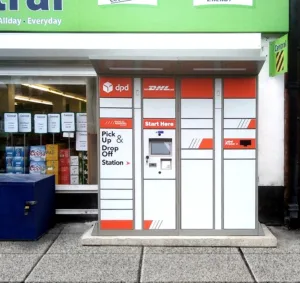By Tim Glomb, VP of Content and Data at Cheetah Digital
The coronavirus pandemic changed retail. This likely isn’t news for you, we’ve seen the effects of such a unique time in history. Now more than ever before, people are shopping online. In 2020, global retail ecommerce sales grew more than 25% and the number of digital buyers is still growing. Retail customers’ expectations have already been transformed by the pandemic, but retailers need to take action to capitalise on these changes and stay ahead of the curve. Data and personalisation are the keys to success and marketers must implement these strategies across platforms.
Point solutions will not succeed in the integrated, cross-channel experiences customers will expect in the next decade. In 2021, consumers want personalisation and retailers must build a comprehensive strategy. We studied consumers across the world to understand their personalisation preferences. In the UK, 77% of consumers find it “cool” when retailers offer them personalised recommendations based on past purchases. Marketing initiatives like these, that offer consumers recommendations based on their individual preferences, are only successful if brands have detailed and accurate data about their customers.
Retailers must find detailed consumer data and apply it accurately
The world generates a staggering 2.5 quintillion bytes of data every day. This is good news for brands looking to optimise their digital communication. We need data to make the most informed decisions about reaching our customers. But creativity is the differentiating factor. Nearly every retailer has access to information about their consumers, but the brands that receive the best ROI for marketing efforts will be the ones who use the most detailed data and apply it creatively.
Consumers have a growing distaste for invasive data-collection strategies that use third-party players or act behind the scenes and track behaviour across platforms. With this in mind, the best way for brands to build trust while gathering the data they need is to use a zero-party data approach. Instead of third-party data that is often provided by external sources, brands can collect information about their customers by asking them questions directly. This could take place in direct-to-consumer surveys that allow buyers to express their specific desires directly to the company, interactive social media call-outs, or quizzes geared toward customer satisfaction. Iconic UK retailer Boden used personalisation to reengineer their customer journey by building data-driven customer personas.
Brands should make the most of email by relying on consumer data
You might be surprised to hear that email is still the number one driver of sales. But many email campaigns operate under a one-size-fits-all approach, with the same promotions sent out to every customer. Consumer data can transform this strategy and make it more effective. With the use of detailed information—gathered via a zero-party data strategy—email campaigns can be personalised and yield a greater return on investment.
In the UK, more than half (51%) of consumers have purchased because of an email—the platform is more successful in generating sales than adverts, social media, websites or SMS/MMS combined.
Sales grow exponentially when marketing initiatives are personalised. Our research has shown that personalisation efforts yield five-times higher spend-per-visit than marketing initiatives that forego personalisation.
Retailers should focus on building loyalty among customers
Consumers feel like they have a direct relationship with the brand if a personalised strategy is used. This grows trust and generates loyalty. 64% of consumers say they are prepared to spend more money to purchase from a brand that they trust, and this proved true for the retailer Vans when they implemented the strategy. At the same time, 74% of consumers are more likely to buy from the same brand over and over again, but would not say they are loyal to that brand. For the customer, loyalty is tied to what the brand is willing to give to them, or what the brand is willing to do to cultivate their loyalty. 24% of consumers say they are not loyal to a specific brand simply because the company did nothing to encourage their loyalty.
There is plenty of room for brands to build a loyal customer base because customers want to interact with brands in this way. This is the time for brands to build customer loyalty through personalised marketing initiatives. In 2021, brands must take a personal approach to build a customer base that keeps coming back.
The retail experience will only be transformed when brands adopt a customer-centric approach based upon accurate data and personalisation. Companies must utilise multi-channel tools that provide insights and actions across platforms so that the personalised experience is all-encompassing for every consumer. Ultimately, data-driven, cross-channel campaigns will generate loyal customers and transform how we understand retail now and in the future.







